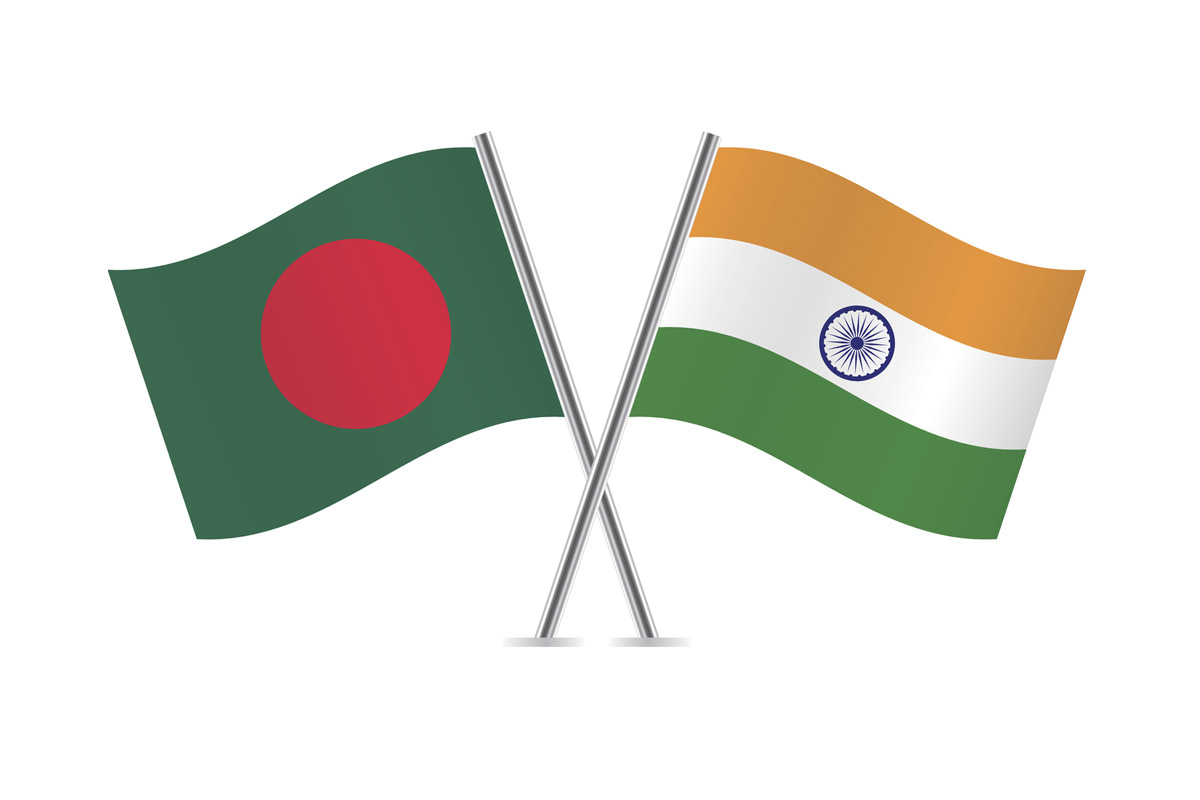The recent political shifts in Bangladesh, particularly during July and August, have significantly impacted the bilateral relationship with India. Given India’s status as a major neighbor, these current tensions are being closely monitored by Bangladesh, with a mix of concern and anxiety. Questions have arisen about how to restore this relationship to a normal and mutually respectful state, which is crucial for both nations.
A New Chapter in Relations Following Sheikh Hasina’s Arrival in India
For over a decade and a half, the relationship between these two neighbors was akin to a honeymoon period. However, recent events have altered this dynamic. On August 5, Prime Minister Sheikh Hasina resigned in the face of student and public protests and, along with several colleagues, went to India. This marked a new chapter in India’s involvement in Bangladesh’s political landscape.
Sheikh Hasina had visited India many times as Prime Minister, receiving extensive receptions. However, the significance and reactions to this visit are different for both sides this time.
India’s Support of Sheikh Hasina and Its Implications
Sheikh Hasina’s seeking refuge in India and the security provided to her has garnered significant attention in Bangladesh. Despite claims from India that they were unprepared for this “refuge,” it remains unclear in New Delhi whether the Indian administration has provided refuge to the President of the Awami League as a refugee or under some other status. India lacks a clear refugee policy or law, and such matters are usually decided based on political considerations.
Political Repercussions in India
Following Sheikh Hasina’s departure to India, some of her family members and party members have expressed dissatisfaction in various media outlets. They have not accepted the change and are blaming various opponents, which is not unusual in such scenarios. Historically, those who have been ousted from power have rarely accepted their helplessness or acknowledged reality immediately. This raises the question in diplomatic circles of whether India will continue to lean towards the Awami League. There is already surprise among diplomats regarding India’s policy towards Sheikh Hasina, with many questioning why India supported a party and government for so long despite its unpopularity among the people.
India’s Policy Missteps?
Questions have also emerged about whether India’s policy towards Bangladesh contributed to this crisis. Despite the Awami League government fulfilling many of India’s demands over the past 15 years, the people’s aspirations, such as the Teesta water issue, have not been adequately addressed. This has only added new nails to the coffin of the government’s unpopularity.
With ongoing violence and tension in Manipur and Myanmar, increased diplomatic distance between Bangladesh and India could further complicate the region’s geopolitics. However, decades of experience suggest that a relationship based on mutual respect and non-interference in internal matters is the only sustainable path forward.
The Challenge for India and the New Government in Bangladesh
The formation of an interim government in Bangladesh under Nobel laureate Dr. Muhammad Yunus following Sheikh Hasina’s resignation has already led to the dissolution of the old parliament. This new government, while temporary, still requires international support, including from India. Maintaining multifaceted commercial relations with the neighboring giant is crucial.
However, the sentiments from various Indian quarters following Sheikh Hasina’s departure are creating a delicate situation for the new Bangladeshi government. For instance, train services between the two countries have been halted, and reports have surfaced that trucks at land ports are not moving.
Adding to the complexity, on August 5, Sheikh Hasina’s son, Sajeeb Wazed Joy, stated to Reuters that his mother “did not resign before going to India and is still the Prime Minister of Bangladesh.” This contradicts his earlier statement, where he mentioned that his mother no longer wishes to engage in politics. This has created discontent among the forces driving change in Bangladesh, potentially destabilizing the situation.
Conclusion
Political commentators suggest that the current situation in Bangladesh’s society and politics is an “extraordinary exception” that India must consider with the utmost objectivity. Ignoring this could have serious consequences.
The relationship between the two countries has become a challenge for the interim government, which must try to maintain normal relations with India while pursuing political reforms. With over 2,500 miles of shared border, maintaining good relations with such a neighbor is crucial.
The recent congratulatory message from the Indian Prime Minister to Bangladesh’s interim government chief adviser on August 9 is a positive sign. It is hoped that future developments will continue in this spirit of mutual goodwill, as a strong Bangladesh-India relationship is essential for the security of South Asia.










